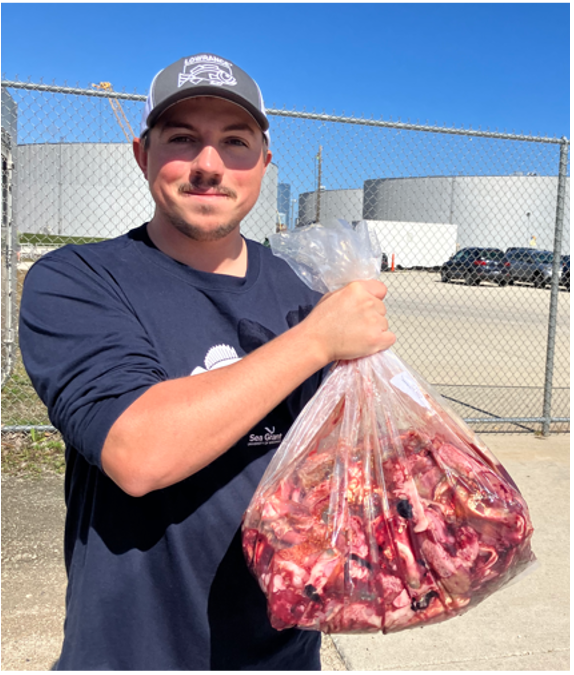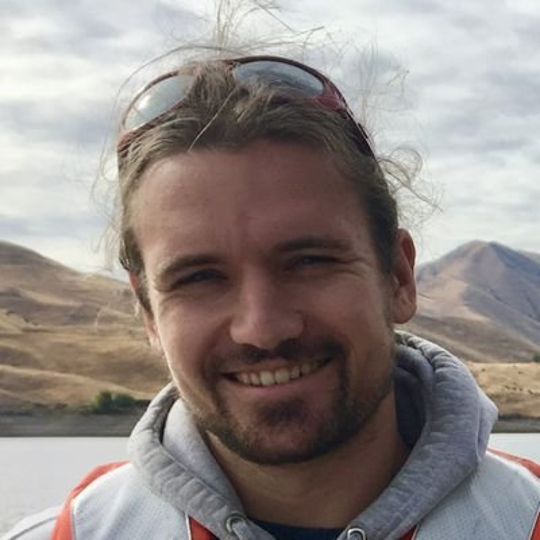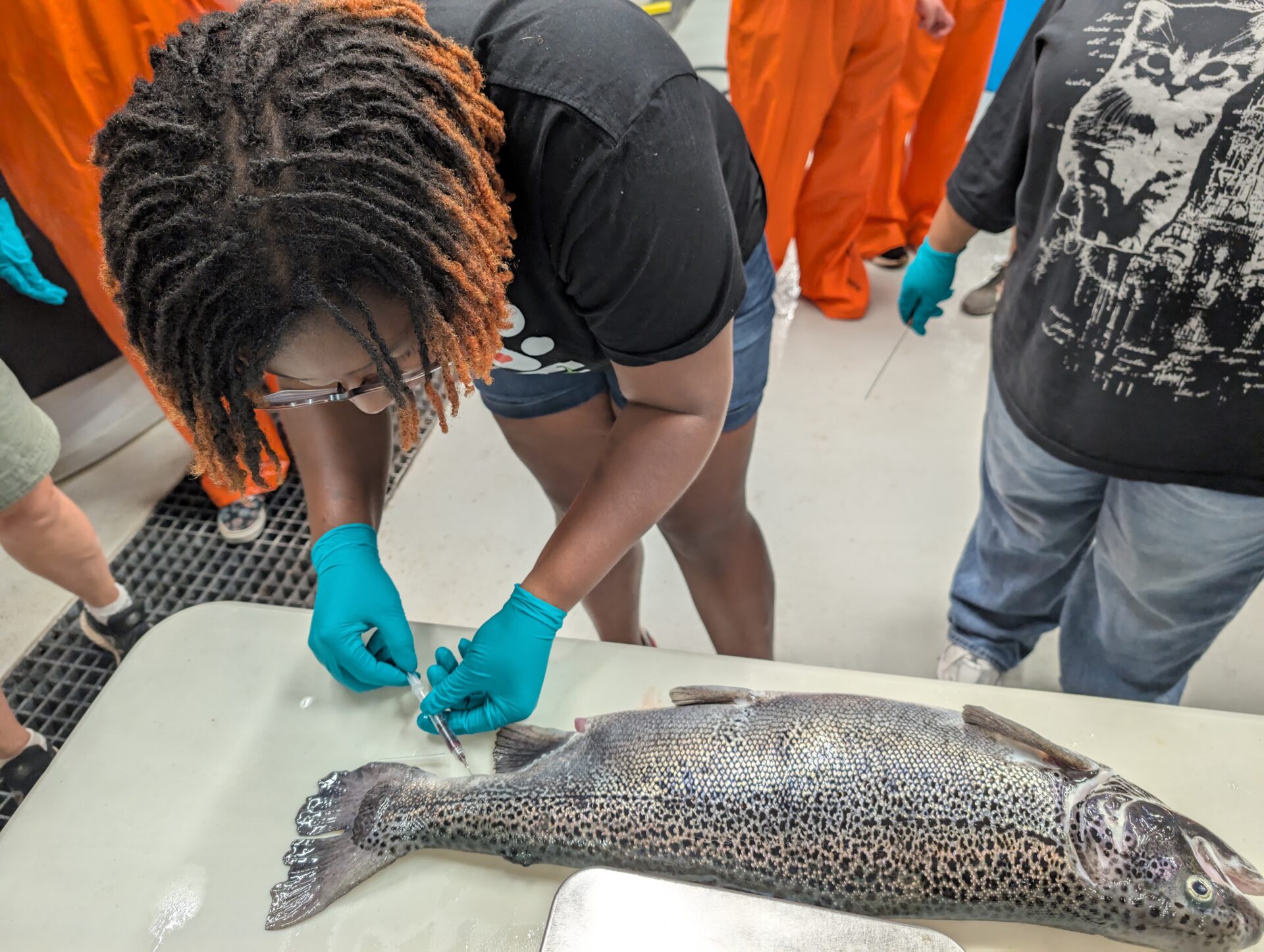When it comes to the anticipated results of the Ira and Ineva Reilly Baldwin Wisconsin Idea Endowment grant he was awarded last week, Tim Campbell can wax poetic, “Like the golden elixir issuing forth from taps in our salon of learning, so too will the knowledge flow.”
Campbell’s fellow grant recipient Eric Olson also offered a literary reference, “To beer, or not to beer, that is the question.”
Although the pair provided these lighthearted descriptions, their new initiative—Tap Talks at Central Waters Brewery—is serious. It is modeled after science cafes, an effective way to both convey scientific research findings and get feedback on future research directions. Scientists have been increasingly sharing their work through semi-formal presentations in small regional breweries in outstate Wisconsin, Minocqua and Ashland are two examples. The River Talks science series hosted by Sea Grant and several partners has for five years offered monthly talks in Superior and Duluth coffee shops and bars.
In 2017, Jon Steigerwaldt, owner of Steigerwaldt Forest Professionals and community partner with Campbell and Olson, contacted Central Waters Brewery to kick-start the idea of a speaker series. The grant will allow its expansion. “Great scientific research is being done in Wisconsin,” he said. “I noticed a disconnect and thirst for factual information that affects those in the area. I thought that by bringing the public into an inviting and relaxing environment, we could restore a sense of value and support for the scientific community.”
Tap Talks is a series of nine monthly talks to engage those who live in and around Amherst in Portage County with the science and scientists of the University of Wisconsin-Madison and Stevens Point campuses. Talks will get underway in September.
“In the communal space of the brewery, we’ll be supporting two-way communication between scientists and the public in the spirit of the Wisconsin Idea, the foundation of Wisconsin’s public university system. Its premise is that knowledge gained on state campuses should be shared with all state citizens to improve their quality of life,” said Campbell, who is an outreach specialist with Wisconsin Grant and also holds a part-time appointment with the University of Wisconsin-Extension Environmental Resources Center.
“UW-Madison researcher Katherine Cramer’s findings about Wisconsin’s fractured social and political culture highlights the gulf between rural communities and the state’s urban centers, including the flagship campus in the capitol city,” said Olson, director of the University of Wisconsin-Extension Lakes.
“Tap Talks comes to central Wisconsin to address that rural/urban divide through information sharing. The series will also provide a forum to address another divide—the varied water needs of smaller-scale agriculture as compared with larger operations and their permit requests for high-capacity wells. The high-capacity wells are having an effect the region’s lakes, rivers, streams and wetlands. We’ll explore those effects through these talks,” Olson said.
Central Waters Brewery will be offering their venue free of charge for the talks. It will also provide a “feedback wall” so Tap Talks participants can share thoughts and responses to each month’s presentation. That feedback will be shared via Facebook to encourage further discussion in the online forum.





